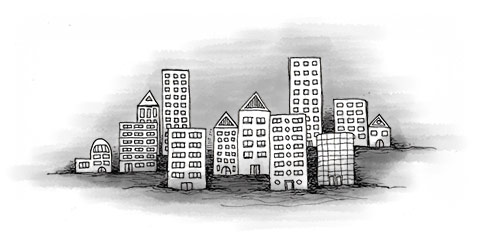Mains Gas
The gas network in Bulgaria is small, with only 500km (300mi) of pipeline, although ‘gasification’ is expanding. Only 30 towns are currently served by the gas network: principally Bourgas, Kyustendil, Pleven, Plovdiv, Ruse, Shumen, Sliven, Stara Zagora, Varna and Vratsa. Villages close to these towns will also have mains gas.
Overgas is the largest retailer of natural gas in Bulgaria, and its website (www.overgas.bg ) includes a map of the towns connected to mains gas.
When moving into a property already connected to mains gas, you will need to contact the local distribution company to have the gas switched on and/or have the meter read and the account transferred to your name. If you want to be connected to mains gas, the cost depends on the amount of gas you expect to use (e.g. for heating or just for cooking), the average connection charge being around 300 lev (€150).
Bottled Gas
Many rural homes have cookers and some also water heaters that use bottled gas. Check when moving into a property that the gas bottle isn’t empty. Keep a spare bottle or two handy and make sure you know how to change the bottles, as this can be quite a complicated procedure.
Bottles can be purchased at most petrol stations and delivery can often be arranged through your local mayor. Some houses keep their gas bottles outside, often under a lean-to. If you do this you must buy propane gas rather than butane, as it can withstand a greater range of temperatures than butane, which is for internal use only (in fact, propane gas bottles must be kept outside a house).
WARNING
If you’re planning to buy or rent an apartment, check whether gas bottles are permitted, as they’re prohibited in many new apartments.
Water
The water supply in Bulgaria, like other areas of infrastructure, suffered from years of underdevelopment. The cities suffer from massive water leaks due to ageing pipes, while in the countryside over a third of rural properties aren’t connected to mains water and only one in ten towns has a sewerage system. Nevertheless, mains water is safe to drink in the cities, although many people in rural areas drink bottled water and only use tap water for washing up and watering the garden.
The old municipal Water and Sewage Departments have been privatised into regional water companies and a number of private companies have begun investing in water supply and waste water management in joint ventures with the regional companies, bringing much needed improvements to Bulgaria's water and sewage systems.
Most properties that are connected to mains water are metered, so that you pay only for the water you use and are charged per cubic metre (1,000 litres). When moving into a new house, ask the local water company to read your meter and transfer the account to your name.
Water shortages are rare in the towns and cities (although they do occur in summer) but are common in some rural areas. It’s possible to have a storage tank installed for emergencies and you should also keep a back-up supply for watering the garden or alternately recycle your house water.
Supply & Connection
If you buy a property in or near a town or village that has mains water, it will probably already be connected. However, some older properties and brand new properties need a connection, which can be expensive as you must pay for digging the trenches required for the pipes. The connection cost can vary considerably according to the type of terrain and soil (or rock!) that must be dug to lay pipes.
SURVIVAL TIP
If you’re thinking of buying a property and installing a mains water supply, obtain an estimate before signing the purchase contract.
If you rely on a well or spring for your water, be aware that in most villages well water is contaminated with sewage, as they aren’t sunk very deep into the ground. Wells and springs can also dry up, particularly in summer in mountainous areas. One option is to have a bore sunk, which is an expensive but more reliable source of fresh water.
Always confirm that a rural property has a reliable water source and check it or have it checked by an expert!
If the water source is on a neighbour’s land, make sure there’s no dispute about the ownership of the water and your right to use it, e.g. that it cannot be stopped or drained away by your neighbours.
Cost
Mains water costs depend on where you live, although they aren’t usually more than 25 to 35 lev (€12–17) per month. You don’t pay water charges for well water or water from a stream or river running through your property.
Sewerage
Properties in urban areas are usually connected to mains drainage, whereas those in rural areas usually have individual sewage systems.
If you have a septic tank, you should use enzyme bio-digesters and employ bleach and drain unblockers sparingly, as they kill the friendly bacteria that prevent nasty smells, and don’t use cleaning agents such as ammonia, as they will destroy the tank. Septic tanks should be emptied every three to five years.
SURVIVAL TIP
Before buying a property with its own sewage system, you should have it checked by an expert. Before buying a property or plot without a system, you should obtain expert advice as to whether such a system can be installed and what the cost will be.
This article is an extract from Buying a Home in Bulgaria from Survival Books.

